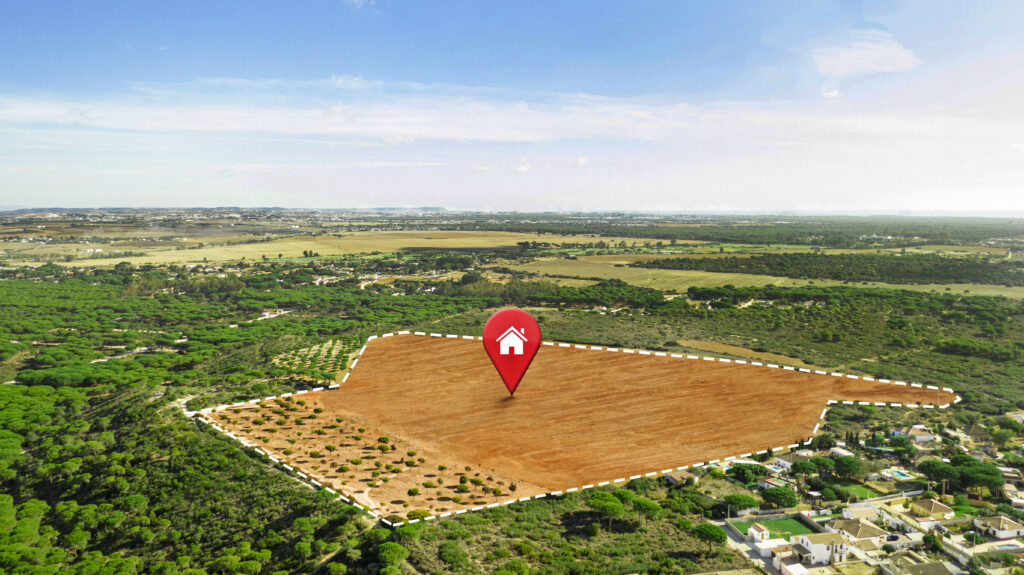The challenges of buying property in Nigeria have become a key concern even as the country’s real estate market has experienced significant growth over the past decade. Cities like Lagos, Abuja, and Port Harcourt have emerged as prime hotspots for property investment. However, buyers face numerous hurdles, including legal issues like title disputes and the risk of fraud. With the right strategies, these challenges can be navigated effectively, ensuring a secure and successful investment.
In this article, we’ll explore the most common challenges of buying property in Nigeria and provide practical solutions for each.
1. Title Verification and Land Ownership Disputes
One of the most common challenges of buying real estate property in Nigeria is verifying the legitimacy of the land or property title. Land ownership disputes are rampant in Nigeria, especially in urban centers like Lagos and Abuja. It’s not uncommon for a single plot of land to be sold to multiple buyers, or for land to be claimed by individuals or families with no legal rights to it.
Solution: Conduct a Comprehensive Title Search
Before committing to any real estate purchase, it’s critical to conduct a thorough title search. This involves verifying the ownership of the land or property through the relevant land registry. In Lagos, for example, the Lands Bureau is responsible for keeping records of land ownership. By verifying the title, you can confirm that the seller has the legal right to sell the property and that the title is free of encumbrances, such as mortgages or legal disputes.
You should engage a professional real estate lawyer to handle this process. A lawyer will ensure that the necessary checks are made, including investigating the land’s history, any existing legal disputes, and ensuring that all ownership documents are authentic.
2. Fraudulent Practices and Scams
Nigeria has unfortunately gained a reputation for fraudulent real estate schemes. Unscrupulous individuals and even some unregistered estate agents may present fraudulent documents, claim ownership of properties they don’t own, or collect deposits and vanish without delivering the property. These scams can be devastating for both local and international investors.
Solution: Work with Reputable Agents and Lawyers
To avoid falling victim to scams, it’s essential to work only with reputable real estate agents and lawyers. Look for agents who are members of the Real Estate Developers Association of Nigeria (REDAN) or the Nigerian Institution of Estate Surveyors and Valuers (NIESV). These organizations regulate real estate professionals and ensure ethical standards are met.
Additionally, insist on seeing original copies of property documents, and never make payments until all legal processes, such as title verification, are complete. Engage a trustworthy lawyer to oversee the transaction and ensure that all documents are in order before signing any agreements.
3. Omo-Onile (Land Grabbers) Issues
The term “Omo-Onile” refers to local land grabbers, particularly in Lagos and other southwestern parts of Nigeria. These individuals, often claiming ancestral rights to land, may demand payment from buyers before or after a purchase has been completed. In some cases, they might even prevent construction from proceeding on purchased land until they are paid off.
Solution: Obtain a Registered Land Title and Use Government-Approved Layouts
The best way to avoid Omo-Onile problems is to purchase land with a Certificate of Occupancy (C of O) or a registered land title. A C of O is issued by the state government and is proof of ownership and the legality of the land. Lands without proper government recognition are more likely to attract Omo-Onile harassment.
Moreover, buying property in government-approved layouts or estates significantly reduces the risk of dealing with Omo-Onile. Developers of these estates often settle with local communities, meaning buyers can avoid direct confrontation with land grabbers.
4. Financing Difficulties
Securing financing for property purchases in Nigeria can be challenging. Mortgage options are limited, interest rates are often high, and financial institutions require extensive documentation and collateral. This makes it difficult for middle-income earners to afford property.
Solution: Explore Flexible Payment Plans and Mortgage Options
Many reputable real estate developers, such as Rigini Homes, offer flexible payment plans that allow buyers to spread their payments over several months or years. These payment plans can make it easier to purchase property without the immediate need for a full lump sum.
Additionally, some banks and financial institutions now offer more accessible mortgage options, though these may require significant down payments (usually around 20-30%). Investigate all available mortgage options, and consider consulting with a financial advisor to determine the best approach for your financial situation.
5. Unclear Land Documentation and Titles
In many parts of Nigeria, particularly in rural areas, land documentation may be incomplete or unclear. Titles may not be registered, or the process for obtaining a title may be convoluted and filled with bureaucratic delays. This lack of clarity can lead to ownership disputes or problems when attempting to sell the property in the future.
Solution: Ensure the Land Has Proper Documentation
Always ensure that the land or property you’re purchasing has a clear title and is properly documented. In Nigeria, land documents such as a Deed of Assignment, Survey Plan, Governor’s Consent, and Certificate of Occupancy are essential for verifying land ownership.
Before finalizing any deal, request to see these documents and have them authenticated by a lawyer. The lawyer can also help ensure that the title is properly registered with the relevant government authority, which is critical for establishing ownership.
6. Government Acquisition and Land Use Restrictions
In Nigeria, some lands are classified as government acquisition areas, meaning they are reserved for future government use or development. Purchasing land in these areas can be risky, as the government has the right to reclaim it without compensating the buyer.
Solution: Verify the Land’s Status with the Land Registry
Before purchasing any property, it’s important to check with the state’s land registry to determine whether the land is under government acquisition. If the land is committed or under acquisition, avoid purchasing it, as you risk losing your investment.
If the land is under acquisition but has been excised, meaning the government has released it for private use, ensure that you have all the legal documents proving this. Always work with a real estate lawyer to verify the land’s status and ensure that it is safe to purchase.
7. Market Volatility and Economic Uncertainty
Nigeria’s real estate market is highly sensitive to economic factors such as inflation, currency fluctuations, and changes in government policies. This can make property prices volatile, especially in major cities like Lagos and Abuja, where demand is high. For investors, this volatility can lead to unpredictable returns on investment.
Solution: Invest for the Long Term and Diversify Your Portfolio
To mitigate the effects of market volatility, it’s important to take a long-term view of your investment. Real estate is typically a long-term asset, and while short-term market fluctuations may occur, property values generally appreciate over time. Ensure that you have a well-thought-out strategy, and consider diversifying your investment across different locations or property types.
Working with a real estate expert can also help you identify areas with strong growth potential, allowing you to maximize your returns while minimizing risk.
8. Infrastructure Deficiencies
In many parts of Nigeria, inadequate infrastructure can be a significant challenge when purchasing property. Poor roads, unreliable electricity supply, and lack of access to clean water can diminish the value of a property and make living or conducting business there difficult.
Solution: Consider Developing Areas with Planned Infrastructure
When purchasing property, it’s essential to consider the availability of basic infrastructure. If you’re investing in a developing area, inquire about the government’s plans for future infrastructure projects, such as roads, schools, and hospitals. Many estates in Nigeria now offer gated communities with reliable utilities, which can provide greater peace of mind and enhance property value.
Additionally, before purchasing, visit the area to assess the state of the infrastructure and determine whether it meets your expectations for comfort and convenience.
9. Delays in Property Transaction
Property transactions in Nigeria can be slow due to bureaucratic bottlenecks. From title registration to obtaining government consent, the process can take several months or even years, causing delays and frustration for buyers.
Solution: Use Experienced Professionals and Follow Up
Working with experienced real estate professionals, including lawyers, surveyors, and estate agents, can help expedite the process. These professionals are familiar with the bureaucratic system and can help you navigate the complexities involved.
Additionally, constant follow-up is essential. Make sure your lawyer is regularly checking on the progress of your transaction, and be prepared to make multiple visits to the relevant government offices if necessary.
Conclusion
While the challenges of buying property in Nigeria come with their share of difficulties, each of these challenges can be overcome with the right knowledge and resources. By conducting due diligence, working with reputable professionals, and taking proactive steps to avoid common pitfalls, you can safely navigate the Nigerian real estate market and make a sound investment.
If you’re considering purchasing property in Nigeria, it’s essential to arm yourself with information, build a strong team of professionals, and take the necessary precautions to protect your investment. With the right approach, the rewards of real estate investment in Nigeria can far outweigh the risks.

